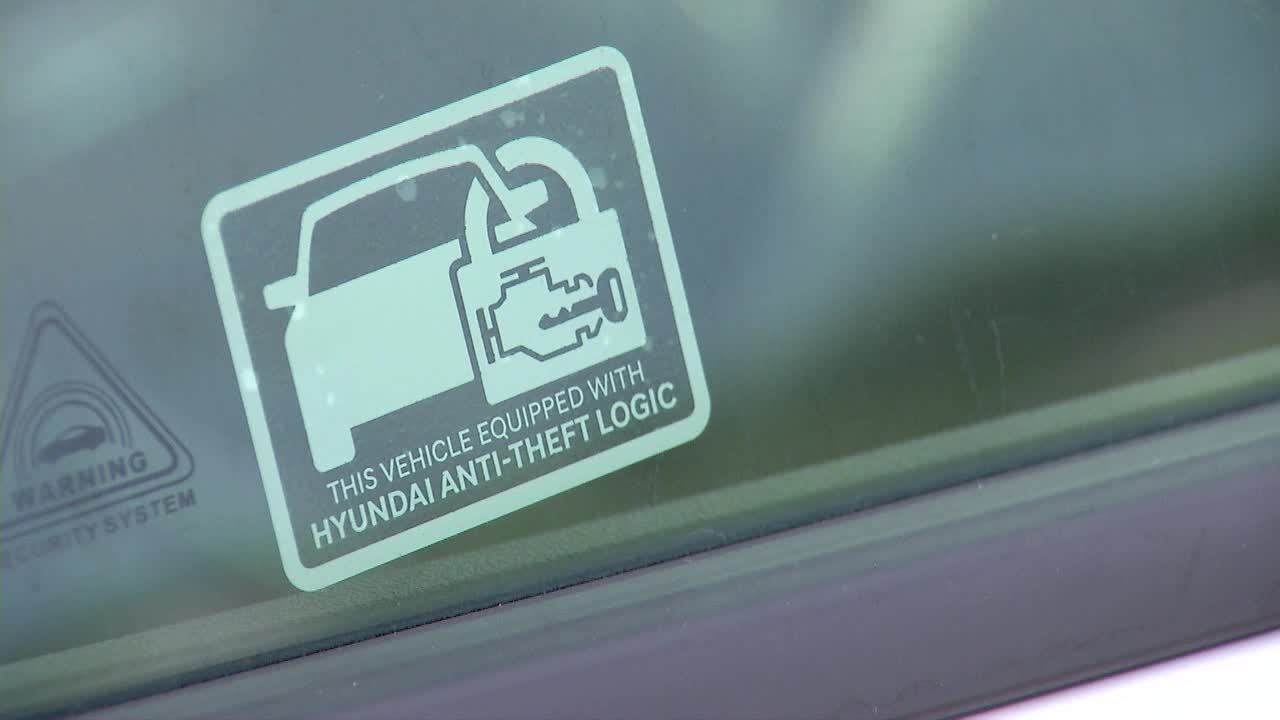‘Too little, too late’: Hyundai vehicles remain theft targets despite security update

Angela Holliday, walking out to the parking lot of her Fridley apartment complex on Friday morning, first noticed the broken glass on the ground next to her car. Someone had attempted to steal her car for the third time in less than a year.
“I was just like, ‘You’re kidding me. Not again,’” Holliday said, sharing the experience in an interview with 5 Eyewitness News on Sunday.
It’s become an unfortunately familiar sight for Holliday since she bought her 2017 Hyundai Elantra in the fall. By February, it had been stolen twice.
Hyundai and Kia cars have been a heavy target of theft for a couple of years after it spread widely on social media that certain models — roughly 7 million cars nationwide, according to the manufacturers — were easier to steal because they lack what the Minnesota attorney general calls an industry-standard anti-theft device.
In February, both manufacturers rolled out a security software update free to car owners that is said to make the cars tougher to steal.
Holliday was one of the first to get the update, complete with stickers in her two front windows that denote the “anti-theft protection.” She showed 5 EYEWITNESS NEWS the changes to her car earlier in July.
“I guess I spoke too soon,” she said on Sunday.
Whoever tried to steal her car again a couple of days ago seemed to have given up, but not before leaving behind yet another big repair bill.
“I just feel like there’s more damage, and it’s not even drivable, so that means I need a tow, I need glass, I need another new ignition and probably a new steering column,” Holliday said.
In response to 5 EYEWITNESS NEWS earlier this month, spokespersons for Hyundai and Kia touted the software update and said about 30% of 7 million affected cars have been equipped with it.
“So the message for Hyundai is, you guys are going to have to come up with something different,” Holliday said. “It’s too little, too late, honestly. It’s almost like just having that symbol on my car, it’s a target.”
5 EYEWITNESS NEWS has reported stories of multiple drivers who had no idea of the risk associated with purchasing an affected car. One mother who purchased her car after the software update rollout said no one told her it existed or that she needed it.
Last week, CARFAX announced a partnership with the manufacturers that allows CARFAX to notify consumers if they plan to buy one of the 4.9 million cars still without the software update.
CARFAX Editor-in-Chief Patrick Olsen said more than 74,000 of those cars are in the Twin Cities metro alone.
“Even, honestly, the LoJack that I spent $750 on, that should’ve came with the car,” Holliday said, referring to the GPS tracking device that she said helped police track down her car both times it was stolen.
She’s taken every available step to protect herself, Holliday said, adding at this point, she’s stuck with the car.
“I am still upside down in this car, and the more we publicize it and everything, the less value I have in my car, so I can’t trade it in,” she said. “So I just have to believe that putting the message out there and going through this so others don’t is where it’s at.”
When asked, a Hyundai spokesperson did not address whether the company was aware of updated cars still being targeted or whether they’d be taking further action as a result.
In an email, the spokesperson said, “Hyundai is not aware of any confirmed failures of the software and can report the software is in fact working as designed.”
The National Highway Traffic Safety Administration, in response to a request from 18 attorneys general — including Minnesota Attorney General Keith Ellison — has said it would not force a recall of affected Hyundai and Kia models. The issue has not been determined to be a “safety defect or noncompliance requiring a recall” under the law, NHTSA said in June.
“It is a safety issue,” Holliday disagreed, citing the fact that it’s brought car thieves onto the property of her apartment complex several times.